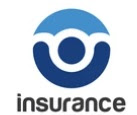Insurance sales and marketing strategies are essential for insurance companies and agents to attract and retain customers. Here are some effective strategies to consider:
Targeted Marketing: Identify your target market and tailor your marketing efforts to reach that specific audience. This can include demographic targeting, such as age, location, and occupation, as well as psychographic targeting based on consumer interests, behaviors, and preferences.
Digital Marketing: Leverage the power of digital platforms to reach a wider audience. Develop a strong online presence through a well-designed website, search engine optimization (SEO), pay-per-click (PPC) advertising, social media marketing, content marketing, and email marketing campaigns.
Content Marketing: Create valuable and educational content that demonstrates your expertise and provides helpful information to potential customers. This can include blog articles, videos, infographics, and guides related to insurance topics, coverage options, and risk management. Sharing informative content helps build trust and positions you as a knowledgeable resource.
Referral Programs: Encourage your existing customers to refer their friends, family, and colleagues to your insurance services. Offer incentives, such as discounts, rewards, or referral bonuses, to motivate customers to refer others. Word-of-mouth referrals can be a powerful tool in acquiring new clients.
Networking and Partnerships: Build relationships with other professionals who serve your target market, such as real estate agents, financial advisors, accountants, or attorneys. Collaborate on joint marketing initiatives, cross-promote each other's services, or offer mutual referrals. Networking events, industry conferences, and local business organizations can also provide opportunities to connect with potential clients.
Educational Seminars and Workshops: Host educational seminars or workshops on insurance-related topics to provide valuable information to prospective customers. These events can help establish credibility, build relationships, and generate leads. Consider partnering with local organizations or community centers to reach a wider audience.
Customer Relationship Management (CRM): Implement a CRM system to track and manage customer interactions, leads, and follow-ups. This helps ensure timely and personalized communication with prospects and existing clients, allowing you to stay top-of-mind and nurture relationships over time.
Customer Reviews and Testimonials: Encourage satisfied customers to leave reviews and testimonials about their positive experiences with your insurance services. Positive reviews can enhance your reputation, credibility, and influence the decision-making process of potential customers.
Continuous Education and Professional Development: Stay updated on industry trends, regulations, and emerging insurance products. Continuous education and professional development demonstrate your commitment to excellence and enable you to offer the most relevant and competitive insurance solutions to your clients.
Exceptional Customer Service: Provide exceptional customer service at every touchpoint. Promptly respond to inquiries, address concerns, and provide personalized assistance. Happy and satisfied customers are more likely to become loyal clients and refer others to your services.
Remember that consistency, persistence, and building long-term relationships are key elements of successful insurance sales and marketing strategies. By employing a combination of these strategies and continuously evaluating and adjusting your approach, you can attract new clients, retain existing ones, and grow your insurance business.



0 Comments